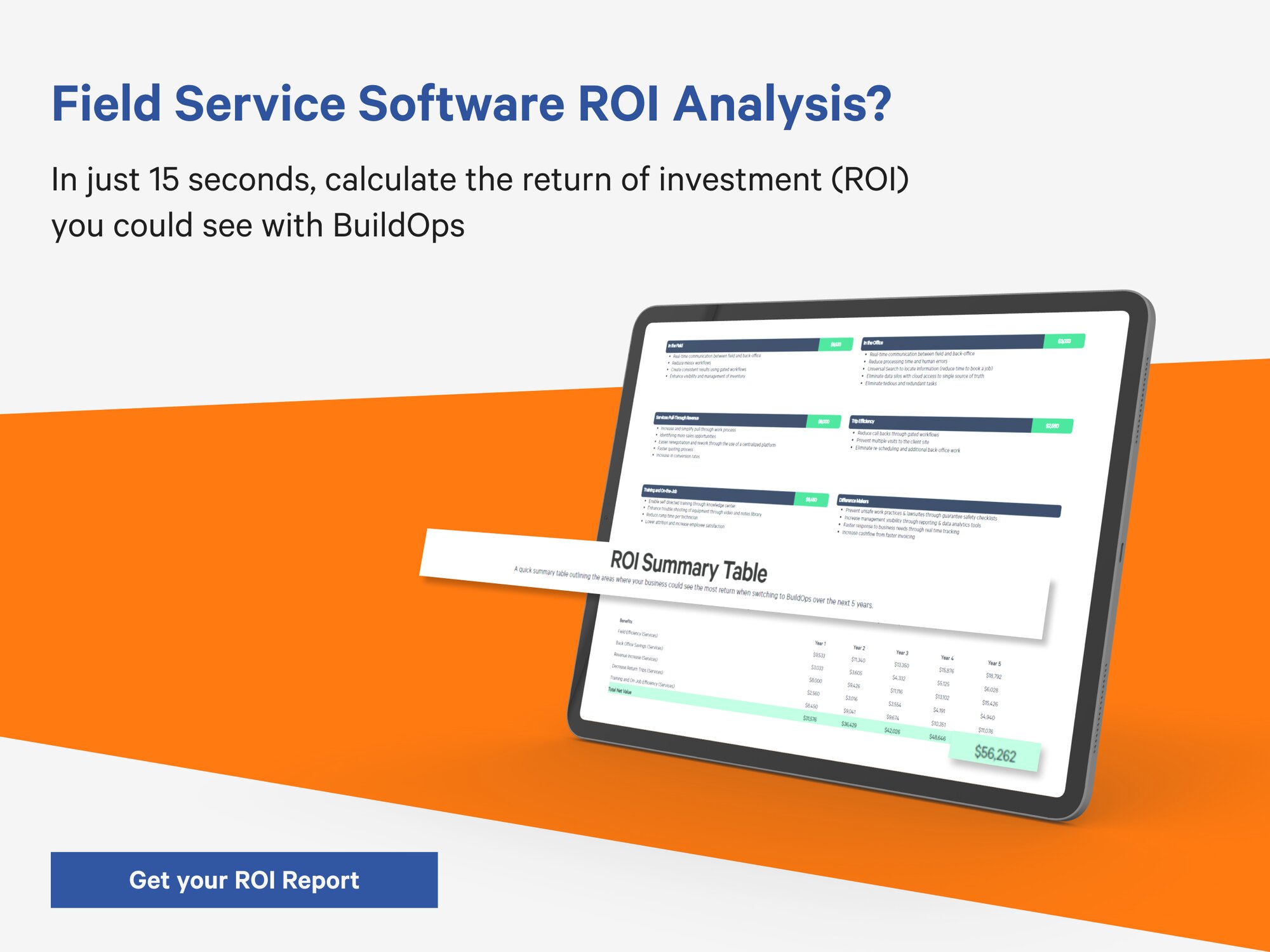
Scheduling software for contractors is a type of computer program that acts as a virtual manager for construction businesses. This software helps contractors manage their projects efficiently, by tracking and controlling labor, supplies, and materials. It also assists contractors in monitoring and managing people, equipment, and subcontractors, and provides reminders and notifications for tracking project progress.
The main feature of scheduling software for contractors is its ability to automatically schedule tasks or components that need to be completed for a construction project. This includes assigning tasks to workers, and tracking the costs associated with them. In addition to scheduling, the software also helps contractors manage budgets, create comparative schedules, and generate reports. They also help contractors track the flow of work and resources through the construction process.
The software also allows contractors access to data over the internet, which is essential for keeping track of jobs in remote locations. This real-time access to the project plan and project budget can help contractors make informed decisions quickly and efficiently.
In order to benefit from scheduling software for contractors, it is important to be aware of its capabilities, limitations, and features. Any scheduling system should be easy to use, with a user-friendly interface. As the software is connected to the business, data security should also be top of mind. Depending on the specific needs of the company, it is important to choose the software solution that best fits the business model.
What are the key features that contractors look for in scheduling software?
When choosing scheduling software for contractors, there are a few key features that are essential. Firstly, the software should offer strong data security and flexibility in terms of features and customization. In order to handle the complex nature of construction projects, the software should offer an organized and simple interface to manage tasks, resources, and budgeting. Additionally, real-time access to the project plan and project budget can be extremely beneficial.
Contractor scheduling software also needs to have an automated task-scheduling system. This should include the ability to assign tasks to workers and remind users of tasks that need to be completed. Furthermore, the software should be able to track the costs associated with the tasks and monitor the progress.
Finally, the software should also include reporting capabilities, allowing contractors to generate comparative schedules, budgeting reports, and invoices. As the data is likely to be stored online, contractors should also ensure that the cloud storage system is secure. This will ensure important information is stored securely and can only be accessed by authorized personnel.
In short, contractors should look for software that includes features such as data security, automation, task scheduling, reporting capabilities, and cloud storage. Choosing the right scheduling software for contractors will allow them to manage their projects efficiently and effectively.
What are the benefits that contractors gain from using scheduling software?
The main benefit of scheduling software for contractors is the time-saving factor. It allows contractors to manage complex tasks more efficiently and reduces the amount of time they spend on manual processes like organizing data and generating reports. The automated processes within the scheduling software help simplify certain tasks while also tracking progress more accurately.
With the software, contractors can access real-time data and information, regardless of the size or location of their projects. This ensures that all stakeholders involved in the project are kept in the loop. Scheduling software for contractors also helps them plan ahead and accurately estimate the cost of a project, as all the necessary data is easily accessible.
Another key benefit of scheduling software for contractors is its ability to reduce human errors. This makes it easier to identify problems and address them promptly, as all the necessary information is in one place. This can save contractors time and money in the long run as they can quickly identify any process or resource gaps. In addition, contractors can also be warned of any possible delays, helping them stay on top of the project.
Finally, scheduling software for contractors provides up-to-date notifications and reporting, enabling contractors to stay on top of project progress. Projects can be tracked easily and help contractors make informed decisions quickly and accurately.
In conclusion, contractors who use scheduling software can experience a range of benefits. These include time and cost savings, real-time access to data and information, error reduction, and more. The right scheduling software for contractors can help them stay organized, efficient, and on budget.
What type of data can contractors track by using scheduling software?
Using scheduling software for contractors, they can track a variety of data related to the project. This can include task progress and time remaining, materials and equipment used in the project, labor costs incurred, budgeting information, invoice details, etc. Contractors can also use the software to generate comparative reports on different projects and analyze how much time and money is being spent on each task or resource.
The software also helps track any changes that are made during the course of the project. This includes changes in personnel, costs, timeline etc., which ensure that all stakeholders remain informed about the progress of their respective projects. Scheduling software also gives users access to up-to-date notifications regarding any delays or problems with tasks assigned. This ensures that everyone involved is kept in the loop.
To summarize, scheduling software for contractors allows them to track a variety of project-related data using automated processes. This helps save time and money while also providing accurate and real-time information about tasks, resources, and budgeting. It also enables all stakeholders to stay informed about the progress of their respective projects.
How does scheduling software help contractors plan and estimate their projects?
Scheduling software for contractors enables them to plan and estimate their projects more accurately. It provides a centralized platform with real-time access to all the necessary data and information, which can be used to identify any discrepancies or potential delays. This helps contractors keep track of tasks and resources needed, as well as budget allocation for each project.
The software also helps contractors compare different projects in terms of time spent on tasks, labor costs incurred, materials used etc., enabling them to make informed decisions quickly and efficiently. Additionally, automation tools within the software help generate accurate reports that can be used for planning future projects.
In conclusion, scheduling software is an invaluable tool for contractors when it comes to planning and estimating their projects.
What are the data security features of scheduling software for contractors?
Scheduling software for contractors come with a range of security features to ensure the safety of data and information. These include authentication protocols, encryption technology, and access control measures that restrict unauthorized individuals from accessing sensitive information. In addition, the software also has audit trails that allow users to track activity within the system, as well as any changes made to project-related data.
The software also provides customizable permission levels so that only authorized personnel can access certain sections or files within the system. To further protect data and information, scheduling software also allows contractors to back up their records in case of an emergency or system failure.
In conclusion, by utilizing the various data security features available in scheduling software for contractors, they can ensure the safety of their data and protect information from unauthorized individuals.
What types of reports can be generated using the scheduling software for contractors?
Scheduling software for contractors enables users to generate various reports that provide insight into the progress of projects. These include task-based reports, which detail time and money spent on each task; resource reports, which track budgetary information and materials used in projects; and invoice reports, which document any payments made or received during a project’s lifespan.
In addition, the software can also generate comparative reports that allow users to compare different projects across multiple criteria such as costs, timeframes etc., helping them make informed decisions quickly and efficiently. Furthermore, the software also has automated tools that enable contractors to generate metric-driven performance indicators which help them evaluate their overall performance.
To summarize, scheduling software for contractors provides users with access to detailed reports that provide valuable insights into the progress of their projects. These reports can be used to make informed decisions, monitor performance indicators, and track various metrics related to project success.




